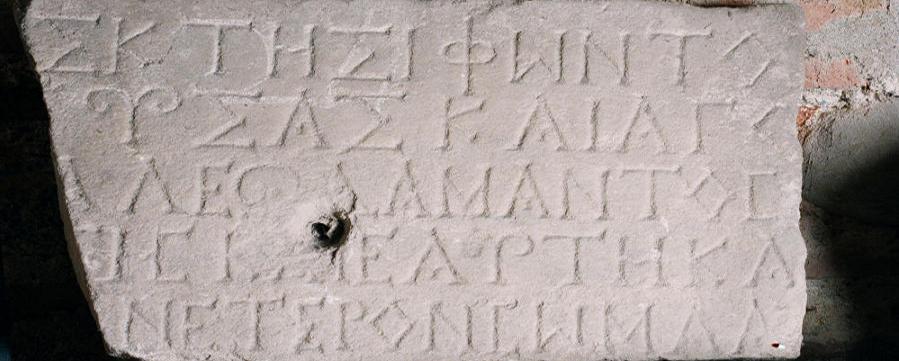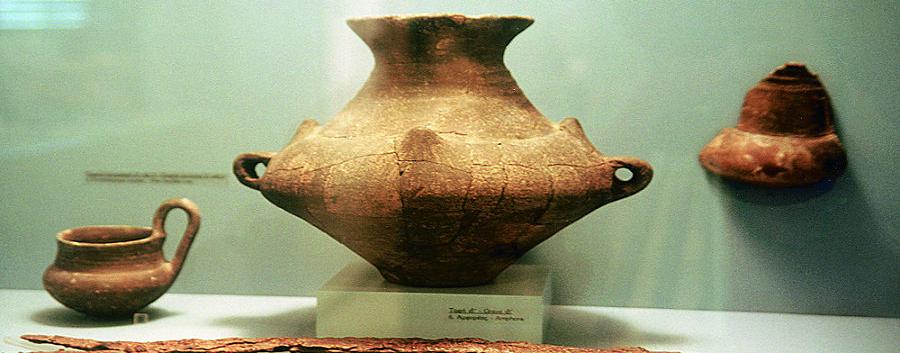Χατζηβασιλείου Αναστάσιος
«Η ΣΥΜΒΟΛΗ ΤΩΝ ΠΡΟΣΦΥΓΩΝ ΣΤΟΝ ΕΚΣΥΓΧΡΟΝΙΣΜΟ ΤΟΥ ΧΩΡΟΥ ΚΑΙ ΤΗΣ ΚΟΙΝΩΝΙΑΣ ΤΩΝ ΣΕΡΡΩΝ»
Το 1922 σηματοδοτεί την απαρχή μιας νέας εποχής στις δύο πλευρές του Αιγαίου. Για τους Έλληνες, οι εξελίξεις συνεπάγονται μια εθνική καταστροφή ασύλληπτης έκτασης. Για τους Τούρκους, τα γεγονότα του 1922 ορίζουν την εθνική ανεξαρτησία. Σε κάθε περίπτωση, το ίδιο ιστορικό γεγονός προσλαμβάνεται ως συμβάν εθνικών διαστάσεων και από τις δύο πλευρές και ορίζει για τους μεν την καταβαράθρωση του γένους και για τους δε τον εξαγνισμό των εδαφών τους. Στην ουσία, λοιπόν, η Μικρά Ασία αποκτά χαρακτηριστικά εθνικού εδάφους για Έλληνες και Τούρκους.
Η ήττα στη Μικρά Ασία, καθώς και οι σφοδρές βαλκανικές συγκρούσεις κατά τη δεκαετία 1910 – 1920, αναγκάζει 1.500.000 Έλληνες να εγκαταλείψουν τις εστίες τους και να εγκατασταθούν στον ελλαδικό χώρο. Η περιοχή των Σερρών αναδεικνύεται σε κατεξοχήν τόπο υποδοχής προσφύγων. Εξελίσσεται σε νέα πατρίδα για χιλιάδες Έλληνες από την Ανατολή (Ανατολία, Θράκη, Ανατολική Ρωμυλία).
Οι νέοι κάτοικοι των Σερρών είτε εγκαθίστανται σε υπάρχοντες οικισμούς είτε οικοδομούν νέους. Το κοινωνικό σοκ είναι χωρίς αμφιβολία μεγάλο και δύσκολα διαχειρίσιμο. Όμως, με την πάροδο του χρόνου, η συμβολή τους στην οικονομική, πολιτική και κοινωνική ζωή της περιοχής των Σερρών είναι καθοριστικής σημασίας. Ο δυναμισμός τους μεταμορφώνει σταδιακά τον τόπο. Χάρη στις δεξιότητές τους σχεδιάζουν και υλοποιούν μεγάλα έργα υποδομής, παρέχουν κίνητρα για τη δημιουργία νέων μονάδων παραγωγής προϊόντων, εκσυγχρονίζουν την αγροτική παραγωγή, διευρύνουν και τονώνουν τη σερραϊκή αγορά. Επιπλέον, ενισχύουν την πνευματική ζωή και συμβάλουν στη διαμόρφωση της σύγχρονης ελληνικής ταυτότητας.
Η έλευση των προσφύγων μεταμορφώνει το νομό Σερρών και ανασχεδιάζει τον τοπικό πολιτικό και κοινωνικό χάρτη. Στην ουσία, οι πρόσφυγες πρωταγωνιστούν αυτομάτως στην επίσημη μετάβαση των Σερρών στην εποχή της νεωτερικότητας. Πάνω απ’ όλα, συμμετέχουν ενεργά στη διαμόρφωση της σύγχρονης εικόνας της περιοχής και των προσλήψεων των κατοίκων της στον 20ό αιώνα.
ΧΑΤΖΗΒΑΣΙΛΕΙΟΥ ΑΝΑΣΤΑΣΙΟΣ
«The Contribution of the Refugees to the Modernization of Serres and its society»
The year 1922 marks the beginning of a new era for the two sides of the Aegean. For the Greeks, the war developments constitute a national catastrophy of inconsiderable dimension. For the Turks, they signify their national independence and the creation of their modern nation-state. In any case, the same historical event is perceived as a development of national dimension both in Greece and Turkey. It marks the humiliation of the Greek “genos” and the “clearing” of Anatolia. In a way, therefore, Asia Minor has acquired elements of national soil for the two sides.
The defeat in Asia Minor and the severe conflicts in the Balkans in the 1910s, obliges almost 1,500,000 people of Greek origin to leave their homeland and to settle in Greece. The area of Serres becomes a major point of reception. Consequently, Serres turns to be the new homeland for thousands of Greeks from the East (Anatolia, Thrace, Eastern Rumelia).
The new inhabitants of Serres settle either in existing settlements or in new ones. Undoubtedly, the social shock is really strong and non-manageable. However, as time goes by, their contribution to the economic, political and social life of Serres is of major importance. The area is gradually transformed by their dynamism. Thanks to their ability and skills, the refugees plan and construct large-scale infrastructure projects. They offer motivations for the establishment of new production units; they modernise the agricultural production; they expand and tone up the local market. Moreover, they support the cultural life and contribute to the formation of the modern Greek identity.
The coming of the refugees in Serres leads to the transformation of the local political and social map. They automatically become the actors of the transition process to the modernity era. Overall they actively participate in the configuration of Serres’ modern image and their inhabitants’ perceptions for the 20th century











